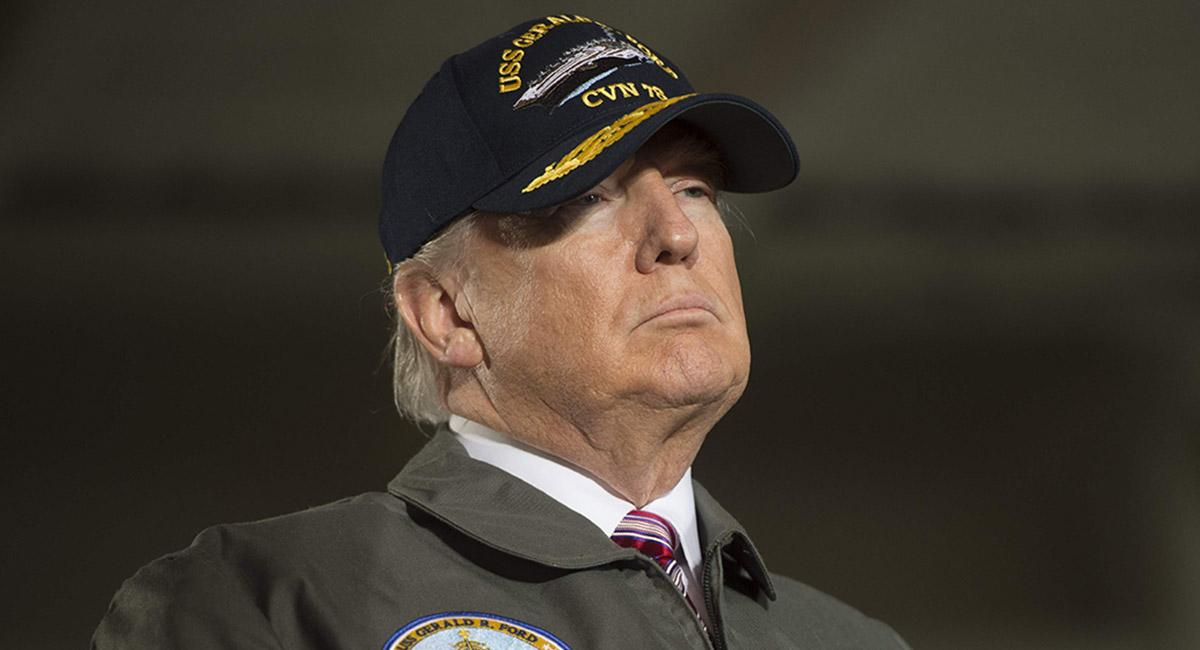Donald Trump gives Pentagon permission to carry out more raids in Yemen after botched operation
Similar permission is being sought by military leaders to carry out operations in Libya and Somalia

Your support helps us to tell the story
From reproductive rights to climate change to Big Tech, The Independent is on the ground when the story is developing. Whether it's investigating the financials of Elon Musk's pro-Trump PAC or producing our latest documentary, 'The A Word', which shines a light on the American women fighting for reproductive rights, we know how important it is to parse out the facts from the messaging.
At such a critical moment in US history, we need reporters on the ground. Your donation allows us to keep sending journalists to speak to both sides of the story.
The Independent is trusted by Americans across the entire political spectrum. And unlike many other quality news outlets, we choose not to lock Americans out of our reporting and analysis with paywalls. We believe quality journalism should be available to everyone, paid for by those who can afford it.
Your support makes all the difference.Donald Trump has reportedly given the Pentagon permission to carry out more raids in Yemen – despite a botched mission in January that resulted in the deaths of 20 civilians and a US Navy Seal.
The White House told military leaders they can carry out missions in the Gulf state without specific presidential approval.
Negotiations about extending similar permissions to raids in Libya and Somalia are also taking place, CNN reported.
Instead of needing Mr Trump to sign off on specific missions, officials told the broadcaster that military leaders will be given the freedom to carry out operations providing they are in line with a broader strategy agreed by the President.
US Navy Captain Jeff Davis said the White House had acted to "open up a window of opportunity based upon a set geographical area and a set period in time".
As a result of the change, 40 US airstrikes have been launched in Yemen in the last two weeks.
The move comes amid what US officials see as a growing threat from terrorist groups in Yemen, Libya and Somalia.
Military leaders have long tried to get the White House to categorise missions in the three countries as “active hostility” – a move that would allow them to carry out raids and airstrikes more quickly and with fewer restrictions.
Before he left office Barack Obama had already agreed to allow operations in Iraq, Syria, Afghanistan and the city of Sirte in Libya.
But while Mr Trump has agreed to extend the remit to Yemen, he not made a decision on Somalia or the rest of Libya.
Days after taking office in January, Mr Trump approved plans for a raid on an al-Qaeda base in Yemen – a mission that Mr Obama had decided not to authorise until further information was available.
The subsequent operation resulted in the death of Ryan Owens, a US Navy Seal, and 20 civilians, as well as 14 al Qaeda militants.
Mr Trump claimed the raid was “highly successful” and the White House insisted it had resulted in vital intelligence being gathered.
But a main target of the raid, militant leader Qassim al-Rimi, either escaped or was not present at the base at the time of the operation. .
Some US intelligence sources have questioned the value of the intelligence gained by the mission.
The three countries where US military leaders want a greater remit to operate all have significant presence of terrorist groups.
Libya continues to be divided among various militant factions, with a strong Isis presence in the country, while in Yemen, political instability has allowed the Al-Qaeda in the Arabian Peninsula group to establish strongholds in the country.
The ongoing power vacuum in Somalia has allowed al-Shabaab, an al Qaeda affiliate, to seize significant amounts of land.
Join our commenting forum
Join thought-provoking conversations, follow other Independent readers and see their replies
Comments